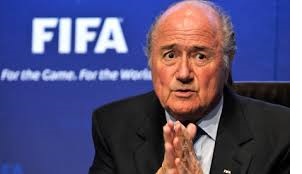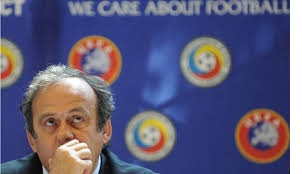The world of professional cycling and doping have been closely intertwined
for many years. Cycling’s International governing Body, Union Cycliste
Internationale (UCI), is currently trying to clean up the image of the sport
and strengthen its credibility. In order to achieve this goal, in January 2014
the UCI established the Cycling Independent Reform Commission (CIRC) “to conduct a wide ranging independent investigation
into the causes of the pattern of doping that developed within cycling and allegations
which implicate the UCI and other governing bodies and officials over
ineffective investigation of such doping practices.”[1] The final report was submitted to the
UCI President on 26 February 2015 and published on the UCI website on 9 March 2015. The report
outlines the history of the relationship between cycling and doping throughout
the years. Furthermore, it scrutinizes the role of the UCI during the years in
which doping usage was at its maximum and addresses the allegations made
against the UCI, including allegations of corruption, bad governance, as well
as failure to apply or enforce its own anti-doping rules. Finally, the report turns
to the state of doping in cycling today, before listing some of the key practical
recommendations.[2]
Since the day of publication, articles and commentaries (here and here) on the report have been burgeoning and many
of the stakeholders have expressed their views (here and here). However, given the fact that the report is
over 200 pages long, commentators could only focus on a limited number of
aspects of the report, or only take into account the position of a few
stakeholders. In the following two blogs we will try to give a comprehensive
overview of the report in a synthetic fashion.
This first blogpost will focus on the relevant findings and
recommendations of the report. In continuation, a second blogpost will address
the reforms engaged by the UCI and other long and short term consequences the
report could have on professional cycling. Will the recommendations lead to a
different governing structure within the UCI, or will the report fundamentally
change the way the UCI and other sport governing bodies deal with the doping
problem? More...
'Can't fight corruption with con tricks
They use the law to commit crime
And I dread, dread to think what the future
will bring
When we're living in gangster time'
The Specials - Gangsters
The pressing need for change
The
Parliamentary Assembly (PACE) of the Council of Europe (CoE), which is composed
of 318 MPs chosen from the national parliaments of the 47 CoE member states,
unanimously adopted a report entitled ‘the reform of
football’
on January 27, 2015. A draft resolution on the report will be debated during the
PACE April 2015 session and, interestingly, (only?) FIFA’s president Sepp
Blatter has been sent an invitation.
The PACE report
highlights the pressing need of reforming the governance
of football by FIFA and UEFA respectively. Accordingly, the report contains
some interesting recommendations to improve FIFA’s (e.g., Qatargate[1]) and
UEFA’s governance (e.g., gender representation). Unfortunately, it remains unclear
how the report’s recommendations will actually be implemented and enforced.
The report is a
welcomed secondary effect of the recent Qatargate directly involving former
FIFA officials such as Jack Warner, Chuck Blazer, and Mohamed Bin Hammam[2] and
highlighting the dramatic failures of FIFA’s governance in putting its house in
order. Thus, it is undeniably time to correct the governance of football by FIFA
and its confederate member UEFA – nolens
volens. The real question is how to do it.


Photograph:
Fabrice Coffrini/AFP/Getty Images Photograph:
Octav Ganea/AP
More...
After Tuesday’s dismissal of Michael Garcia’s complaint
against the now infamous Eckert statement synthetizing (misleadingly in his
eyes) his Report on the bidding process for the World Cup 2018 and 2022, Garcia
finally decided to resign from his position as FIFA Ethics Committee member. On his way out, he
noted: “No independent governance committee, investigator, or arbitration panel
can change the culture of an organization”. It took Garcia a while to
understand this, although others faced similar disappointments before. One
needs only to remember the forgotten reform proposals of the Independent Governance
Committee led by Prof. Dr. Mark Pieth. More...
The 40 recommendations of the Olympic Agenda 2020 are out! First
thought: one should not underplay the 40 recommendations, they constitute (on
paper at least) a potential leap forward for the IOC. The media will focus on the hot stuff: the Olympic
channel, the pluri-localisation of the Games, or their dynamic format. More
importantly, and to some extent surprisingly to us, however, the IOC has also fully embraced
sustainability and good governance. Nonetheless, the long-term legacy of the
Olympic Agenda 2020 will hinge on the IOC’s determination to be true to these
fundamental commitments. Indeed, the devil is always in the implementation, and
the laudable intents of some recommendations will depend on future political choices
by Olympic bureaucrats.
For those interested in human rights and
democracy at (and around) the Olympics, two aspects are crucial: the IOC’s
confession that the autonomy of sport is intimately linked to the quality of
its governance standards and the central role the concept of sustainability is
to play in the bidding process and the host city contract. More...
This post is an
extended version of an article published in August on hostcity.net.
The recent debacle among the candidate cities for the 2022 Winter
Games has unveiled the depth of the bidding crisis faced by the Olympic Games.
The reform process initiated in the guise of the Olympic Agenda 2020 must take
this disenchantment seriously. The Olympic Agenda 2020 took off with a wide
public consultation ending in April and is now at the end of the working groups phase. One of
the working groups was specifically dedicated to the bidding process and was headed
by IOC vice-president John Coates. More...
Qatar’s successful bid to host the 2022 World Cup left many people
thunderstruck: How can a country with a population of 2 million people and with
absolutely no football tradition host the biggest football event in the world?
Furthermore, how on earth can players and fans alike survive when the
temperature is expected to exceed 50 °C during the month (June) the tournament
is supposed to take place?
Other people were less surprised when FIFA’s President, Sepp Blatter,
pulled the piece of paper with the word “Qatar” out of the envelope on 2
December 2010. This was just the latest move by a sporting body that was reinforcing
a reputation of being over-conservative, corrupt, prone to conflict-of-interest
and convinced of being above any Law, be it national or international.More...